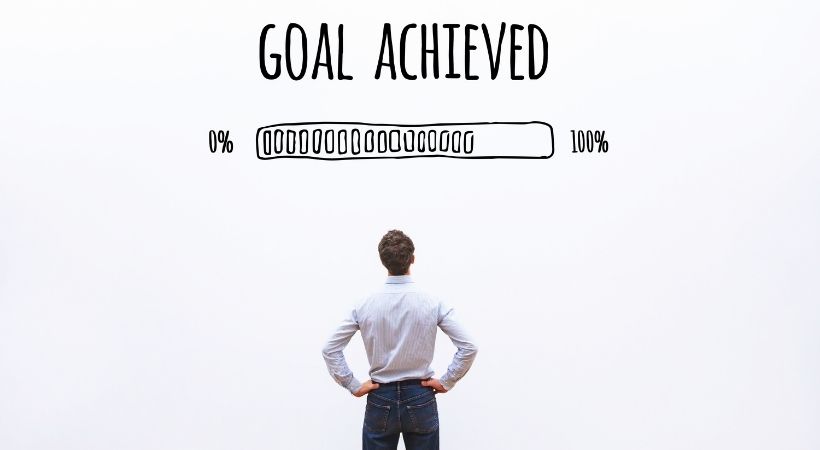My Experience on How to Get into a Top University in Canada

I would be lying, if I stated that this is a simple question to answer. I would also be lying if I said that there is an exact answer, since not only is every student different, but every school's desires are unique.
When one wants to find an answer to how to get into a top university, it is wise to ask someone or people, who has/have experienced a similar situation to yours. I was honored to have been accepted by McGill University, where I am currently studying; therefore, I am able to provide some insight for future undergraduate or graduate students. As you can tell, this is based on my personal experience and the opinions I have formed from my own experience.
I am attacking this crucial question of how to get into a top university based on how I got accepted to one of the best universities in Canada and a ‘top-notch’ global institution.

How to Get Into A Top University- Importance of Grades
I want to be 100% honest with you. Most of the admissions will be based on your grades and your past academic efforts, going back even to the beginning of your high school years, when necessary (If the application reviewers need to choose between multiple tied candidates) I have seen various students indecisive during their high school years, when considering the International Baccalaureate (IB), A-Levels, which senior level courses to take or any other pre-university prep. The harsh truth is that without high grades, regardless of the system you are a part of, it will be difficult to achieve high.
It’s also essential to state that from European or American public systems, the admissions officers of the top universities give preference to IB students and other similar programs since they are a way of acclimatising to the university world before even applying. The teaching and studying techniques and methods are based on university best practices.
As far as my personal experience is concerned, it was an exception to the 'norm'. I was swtudying for the IB Diploma in Greece, but my graduating year was the year that the global pandemic hit (2020). The governing body of the IB program canceled the final examinations. Looking at it from two perspectives, for some this was a good thing since more students got accepted. At the same time, it was unfortunate for others since the final grades didn't explicitly represent the students' work and other qualifications, such as adapting under pressure and handling critical conditions.
Don't get me wrong, even in these conditions, the admission requirements for most great universities are high, and it's not easy to get accepted. I'm saddened when mentors state that the student's schools' grading isn't essential or equally important when building one's application portfolio. Almost always, the only people you will ever hear 'dissing' school or saying that grades aren't important are the ones that failed to achieve high enough grades or who's only school choice was a third class university.
Grades are the most critical aspect being accepted into a top university.
Whether you are in your early years of high school or the final year in a pre-university program, it's vital to achieve high marks because they will play a significant role, once you choose to follow the precarious path of applying to top universities.

How to Get Into A Top University - Progress
This point isn't only limited to the marks of one's academic performance, but it's a more general aspect of University admission. Generally, universities love seeing progress, which is interrelated with the student's performance throughout the academic years before applying. I would go as far as to state that universities would prefer a student that didn't begin consistently, but managed to achieve higher grades, than another applicant who might have been consistent initially but then showed a lapse in their efforts.
"It's a marathon, not a sprint." I'm sure you have heard that before, haven't you? At this point, it's more than a given and the continuous effort that demonstrates progress shows the university that you are willing to keep striving towards tyour end goal (graduation) and that you won't settle for a mediocre performance.

How to Get into a Top University - Work Experience
The following section is the beginning of building a well-rounded profile. The point is to show the university your engagement and progress in life, outside of the academic spectrum. Primarily, the admissions office needs to understand that you possess the difficult skills of time management and multitasking, which you're best to develop in the pre-university years.
The first thing you have to understand is that a university wants to see that you have experience outside of the academic spectrum but interrelated with the career you want to persue. At this point, when you are at the threshold of choosing a career path, you’ll have to decide between a valuable (to your education) internship and a less valuable (but valuable to your bottom line) job.
For instance, I wanted to pursue a career in politics. Before university, I had to decide between becoming an intern at a political, legal, or diplomatic institution, or trying to get a paid part-time job as an assistant. I couldn’t get a paid position in the political institution without even having completed my secondary education, so I decided to become an intern. This was the best choice I had made, until recently, in terms of work experience. After making similar choices, multiple times, I can proudly say that strongly believe this is the best way to go. Universities want to see that you have been engaged in your chosen field of study.
Make sure you choose a challenging internship. For instance, don’t choose to be someone who just answers the phone and doesn't take on complex tasks and leadership roles. Your position should show that you have used and capitalized upon your skills, learned new skills, took leadership in tasks and also exhibited values such as humility and respect.

How to Get into a Top University - Volunteer Experience
This is another crucial part of your application, but it's different from the others because you can show a part of your inner self and how you like to give back to the community. Volunteering is giving freely of yourself with absolutely no expectation of a gain. It's a way for you to engage with society. The effort you make here provides better life experiences for others. Volunteering is a choice; you aren't obliged to give back, but this engagement will show precious snipits of what kind of human being you are.
I know that many people are just volunteering for the sake of showing they are engaged in their community. They will note the experience in their application. Guess what? Too bad for them. Not only have they robbed themselves of a rewarding experience, but the truth will be revealed when the time comes to use the values they would have gained in an interview (assuming they get one) or in a university task. Looking at volunteering as an obligation doesn't help you understand the world around you. It doesn't help you build a profile beyond the grades and the internships. Nor does it help the university see you as something other than a number.
Finally, you need to understand that the ultimate thing gained by volunteering is commitment. Commitment is the vital key. This devotion will give you the high regard you aspire to get and it will serve you well in your education.
Keeping the same focus on your future will push you to fill your summer with work activities and volunteer actions. This is the way you will be successful. The way you will be able to pull that acceptance letter out of your mailbox.
Have a look at my diversified content on 'the platform of Medium', the significant number of articles with political, humanitarian, historical and economic analyses and my advice for self-improvementn and marketing strategies.
Similar Posts
How do you email a professor about funding?
How to Email a Professor About Research Opportunities
Avoid Getting Into A Fake University/College In Canada
How To Get Cheap Flights For Students
How to accomplish what you want - S.M.A.R.T. Goals for Students
Fake Friend? Learn the types of the fake friends
A Complete Guide on How to Write a Statement of Purpose
Graduate Admission Committee- What do they look for in an applicant?
Writing a Scholarship Essay That Indeed Works!
Have a wonderful topic in mind?
Email us at contact@skipissues.com
